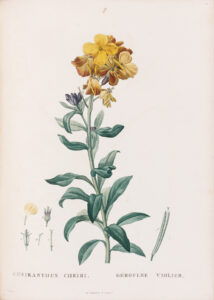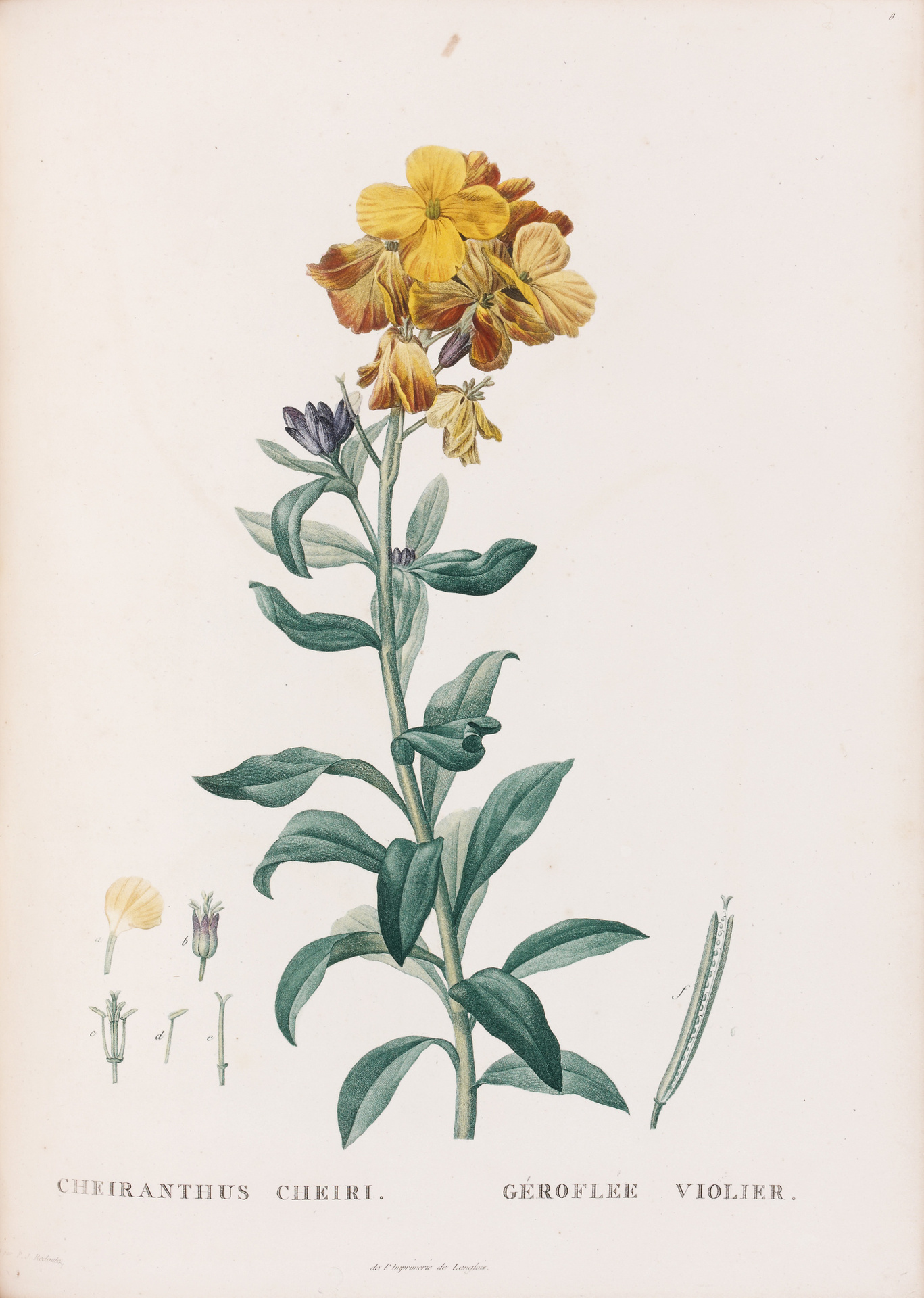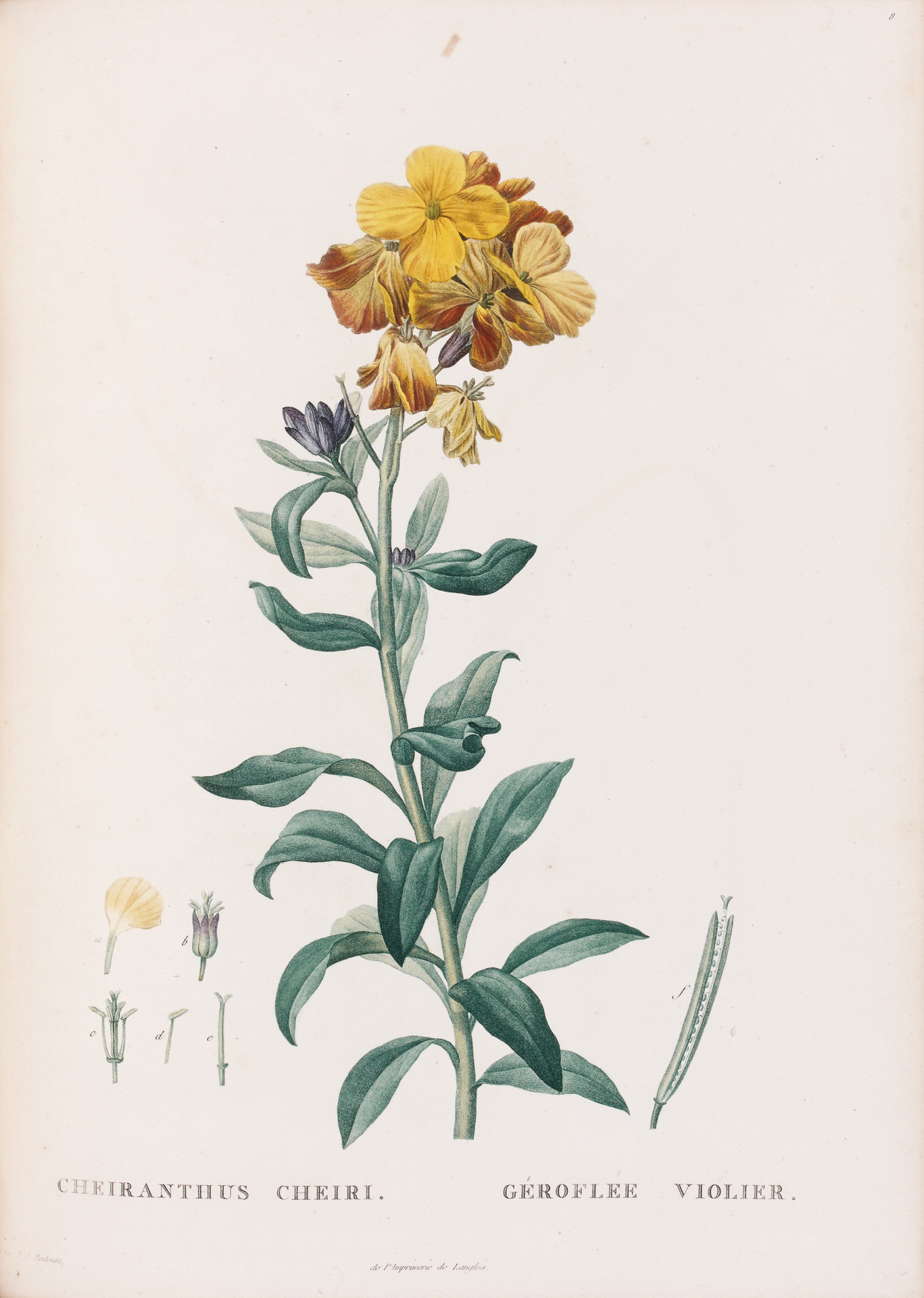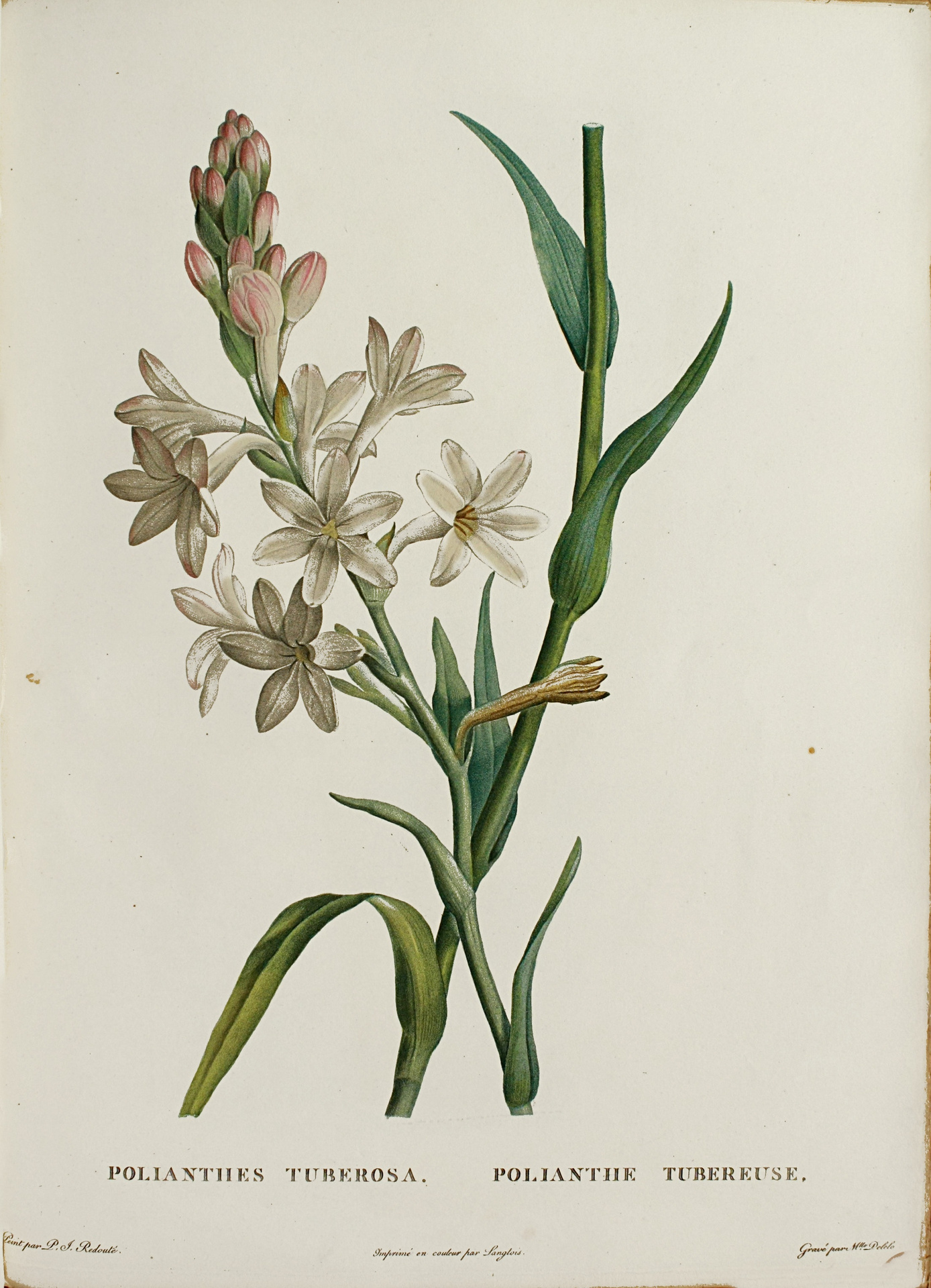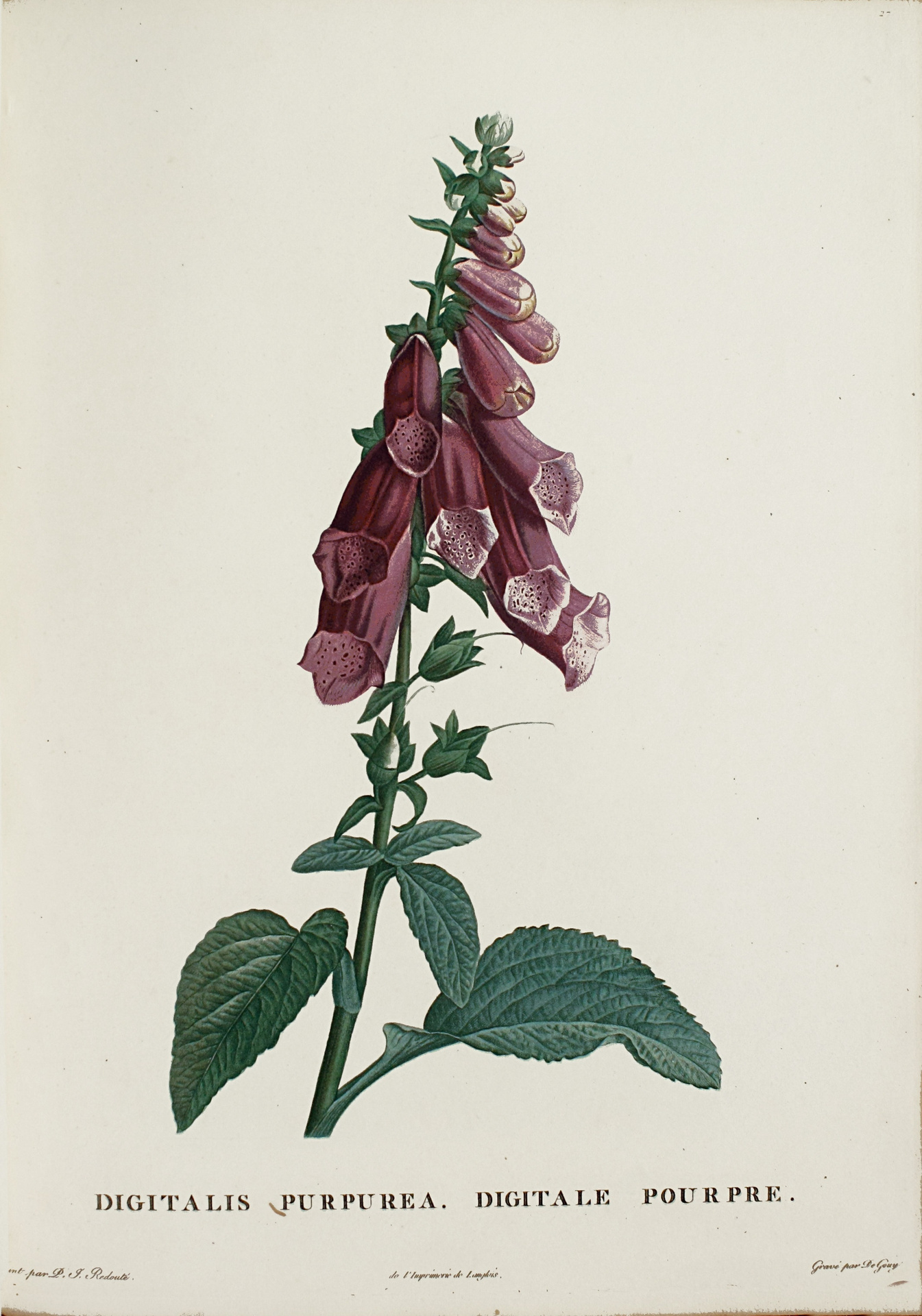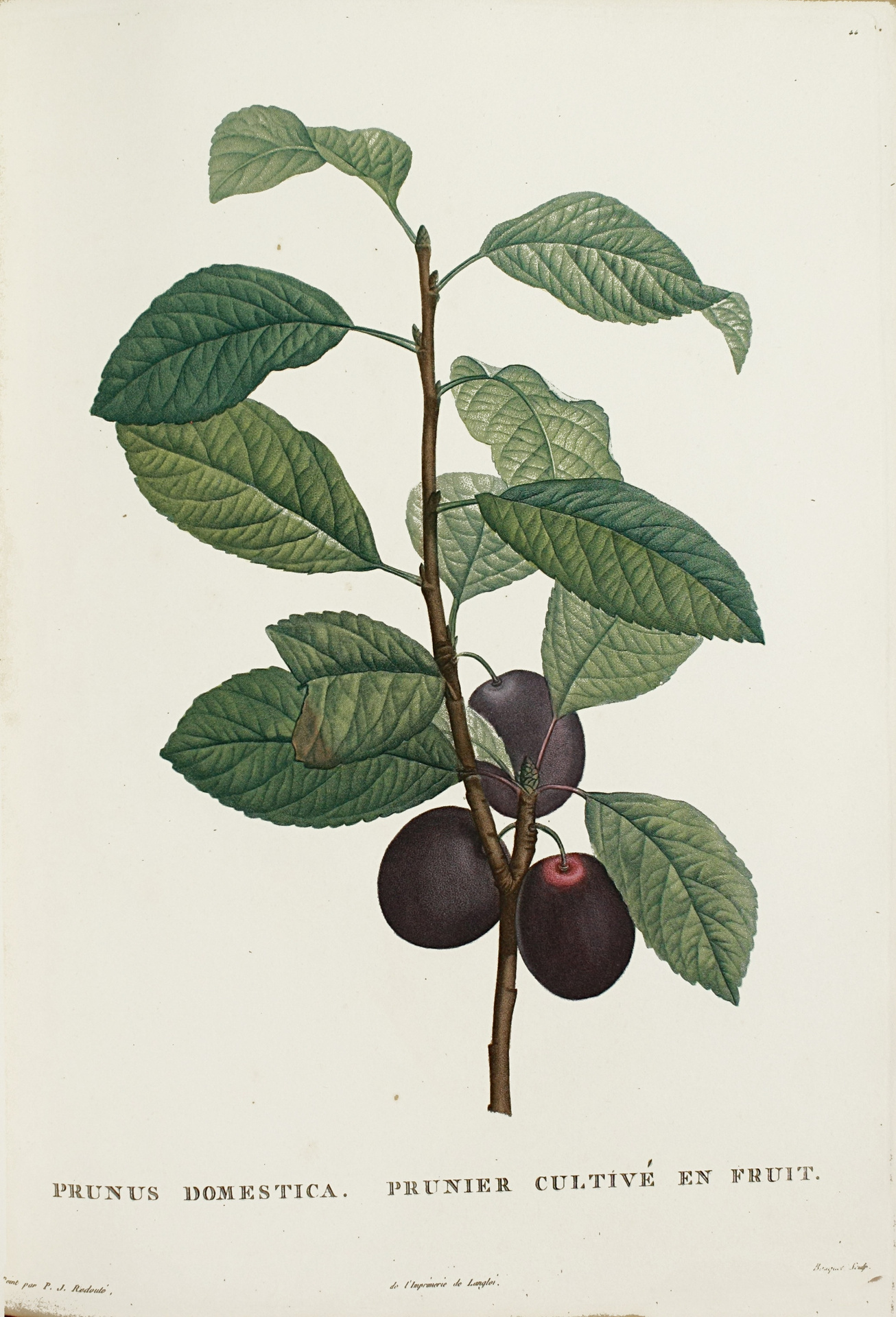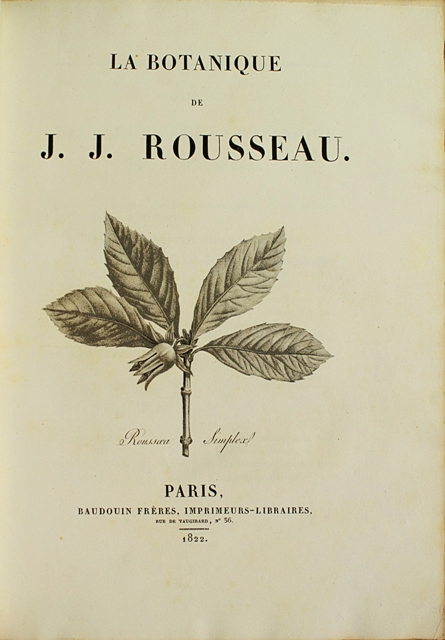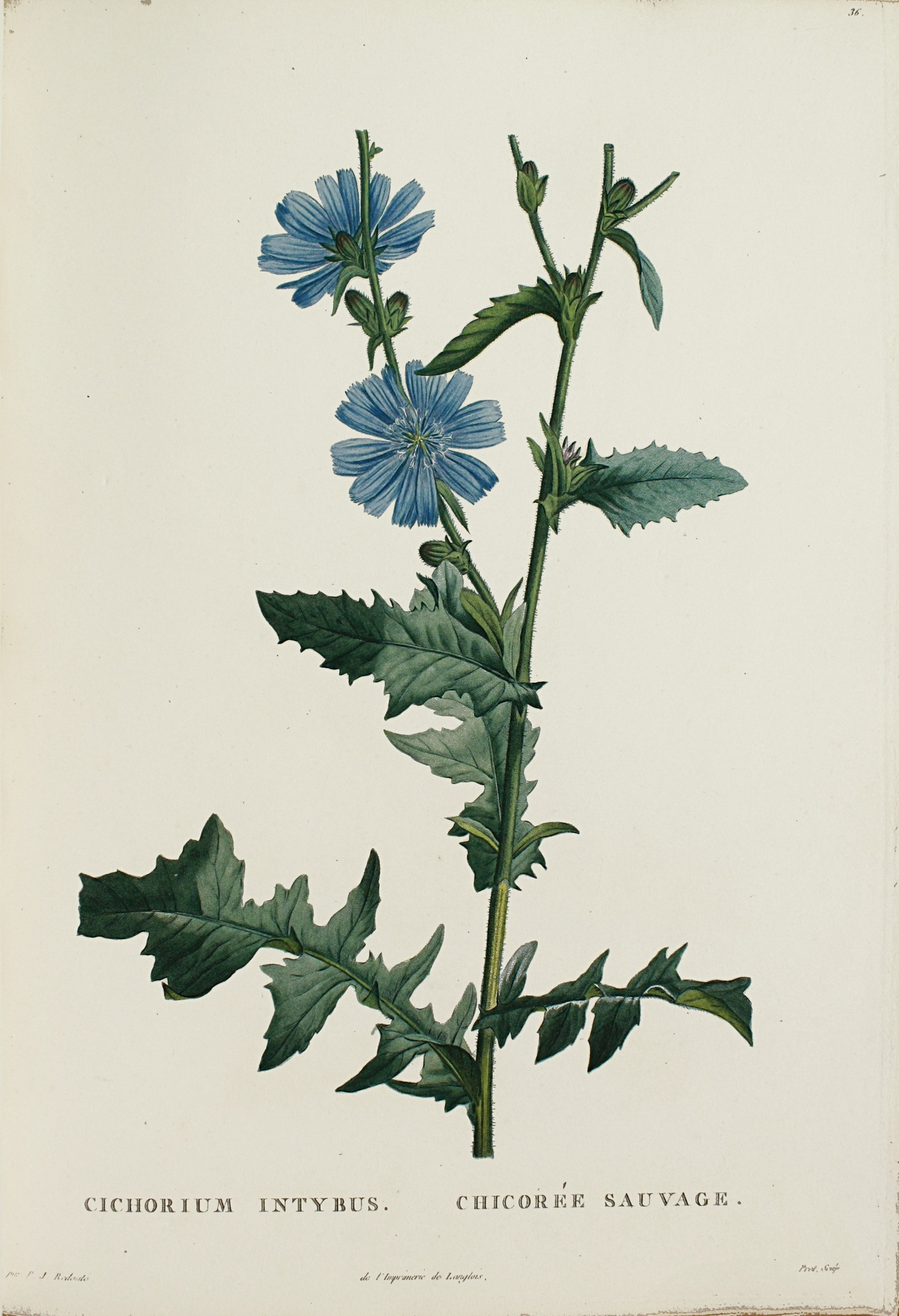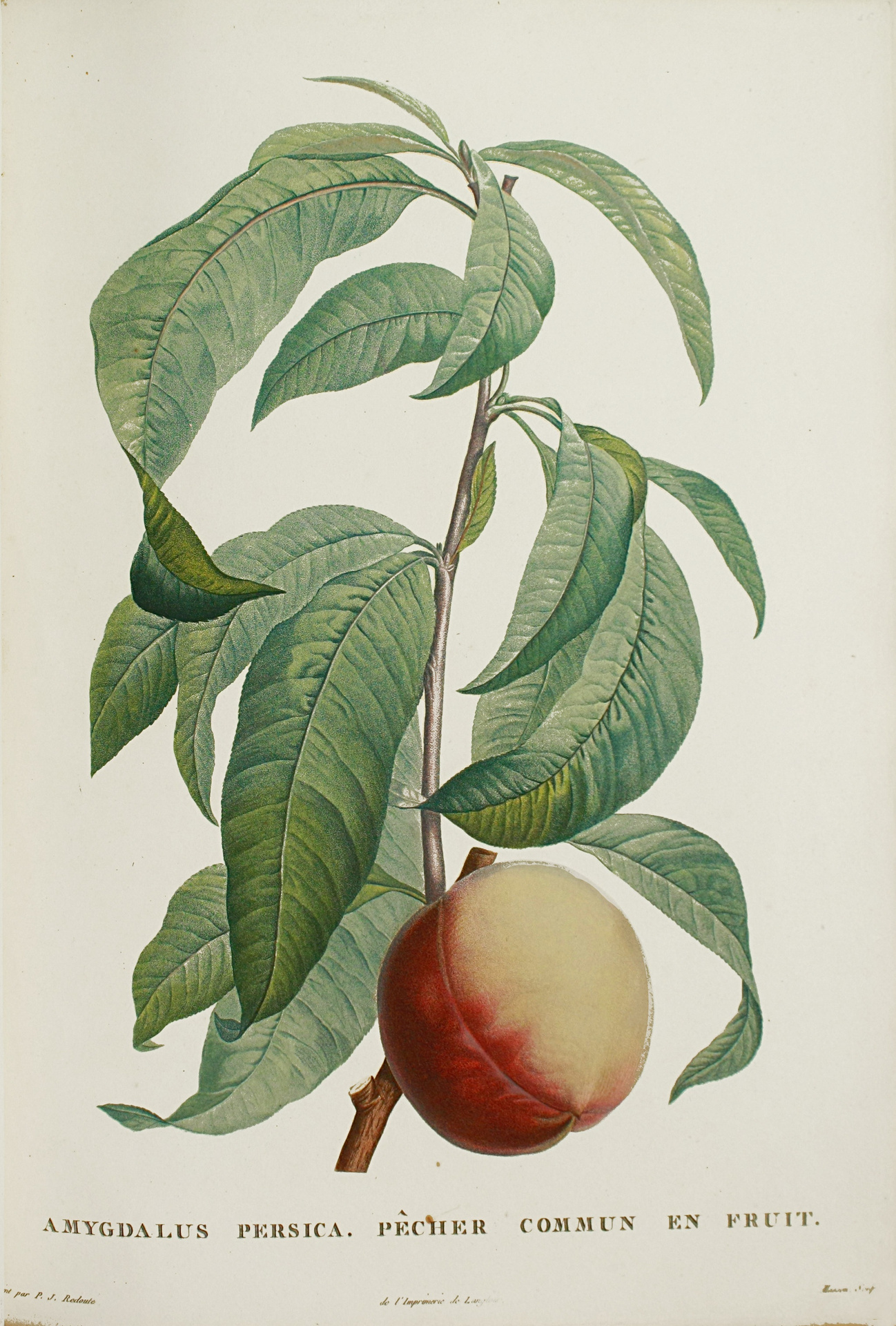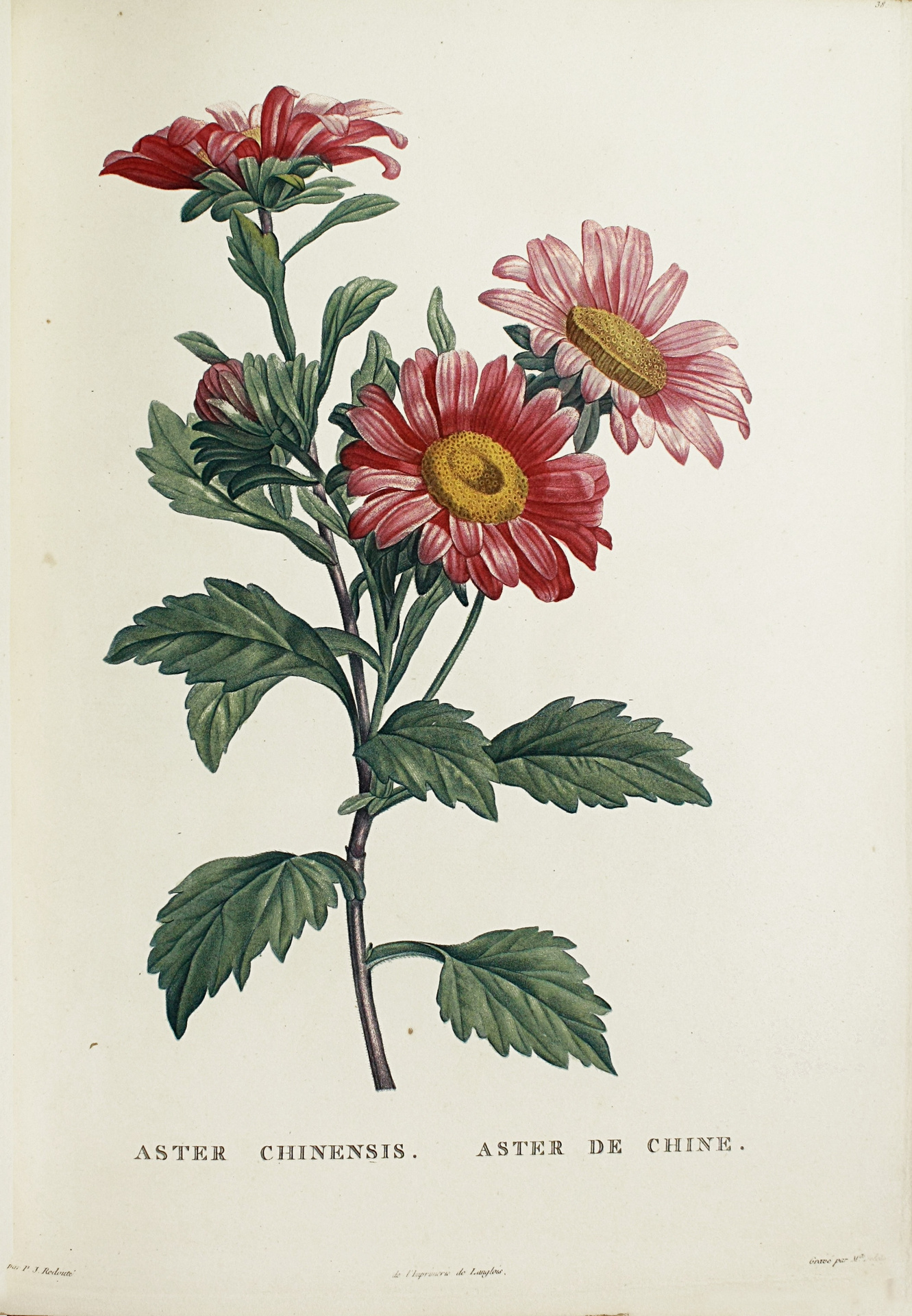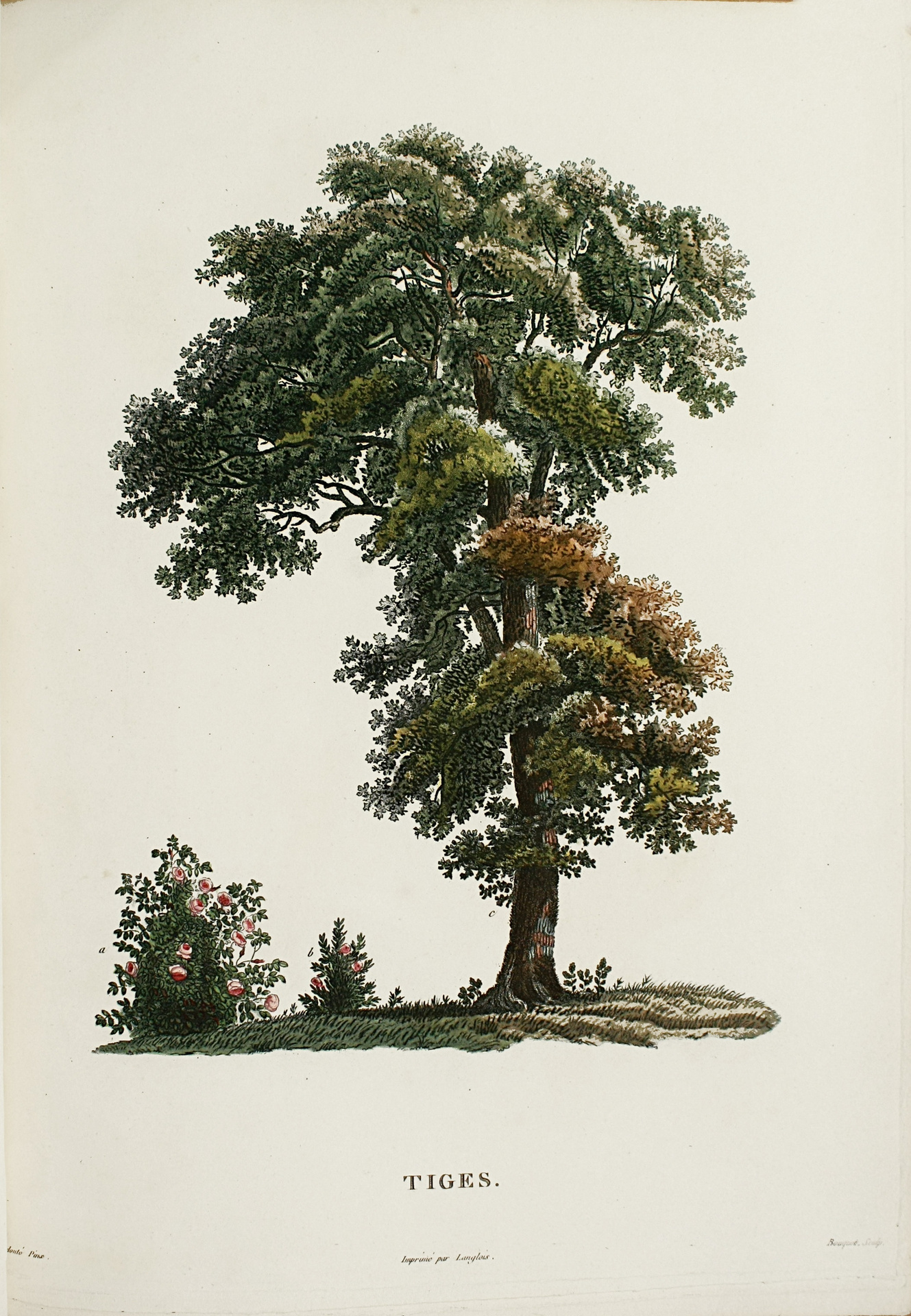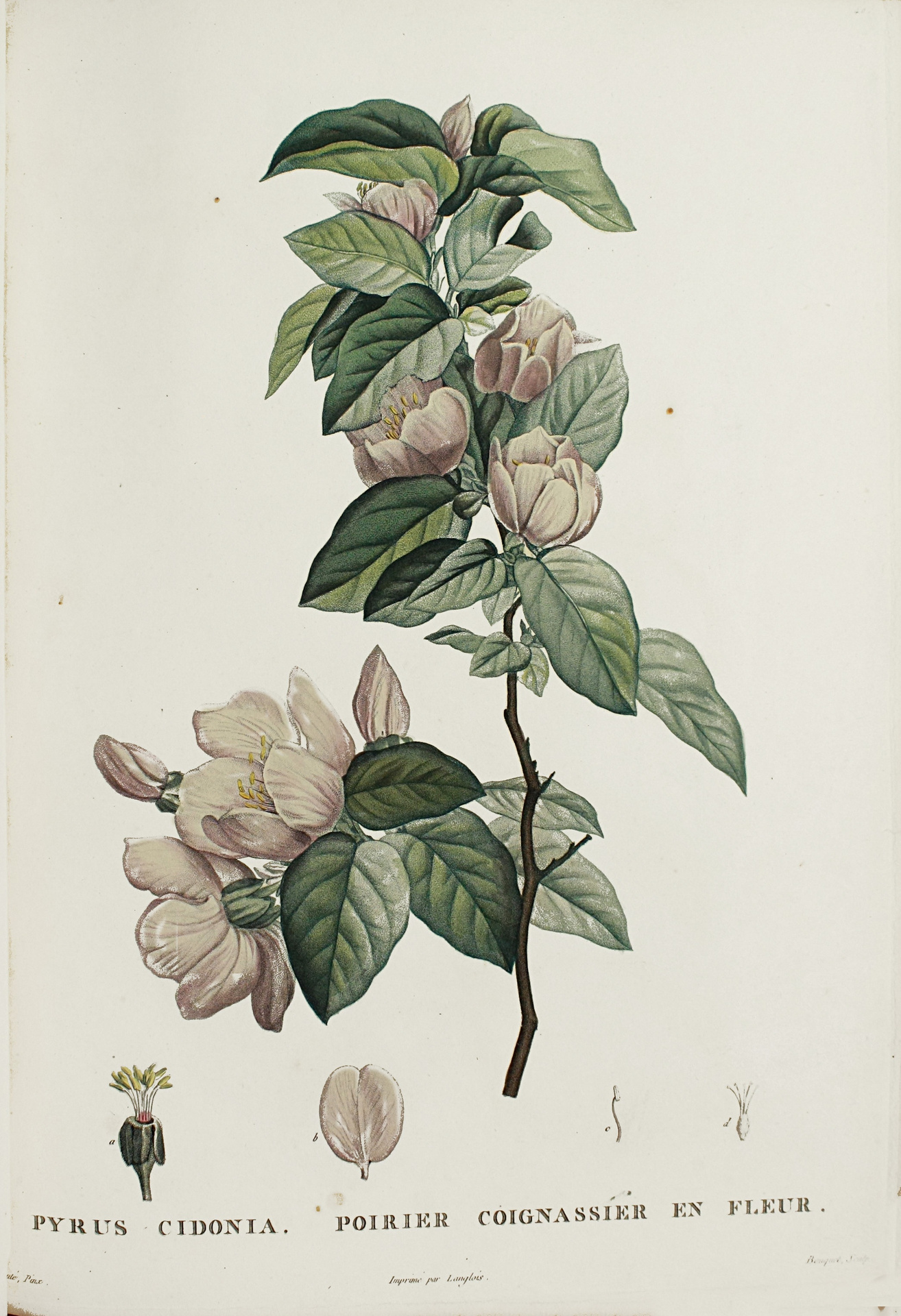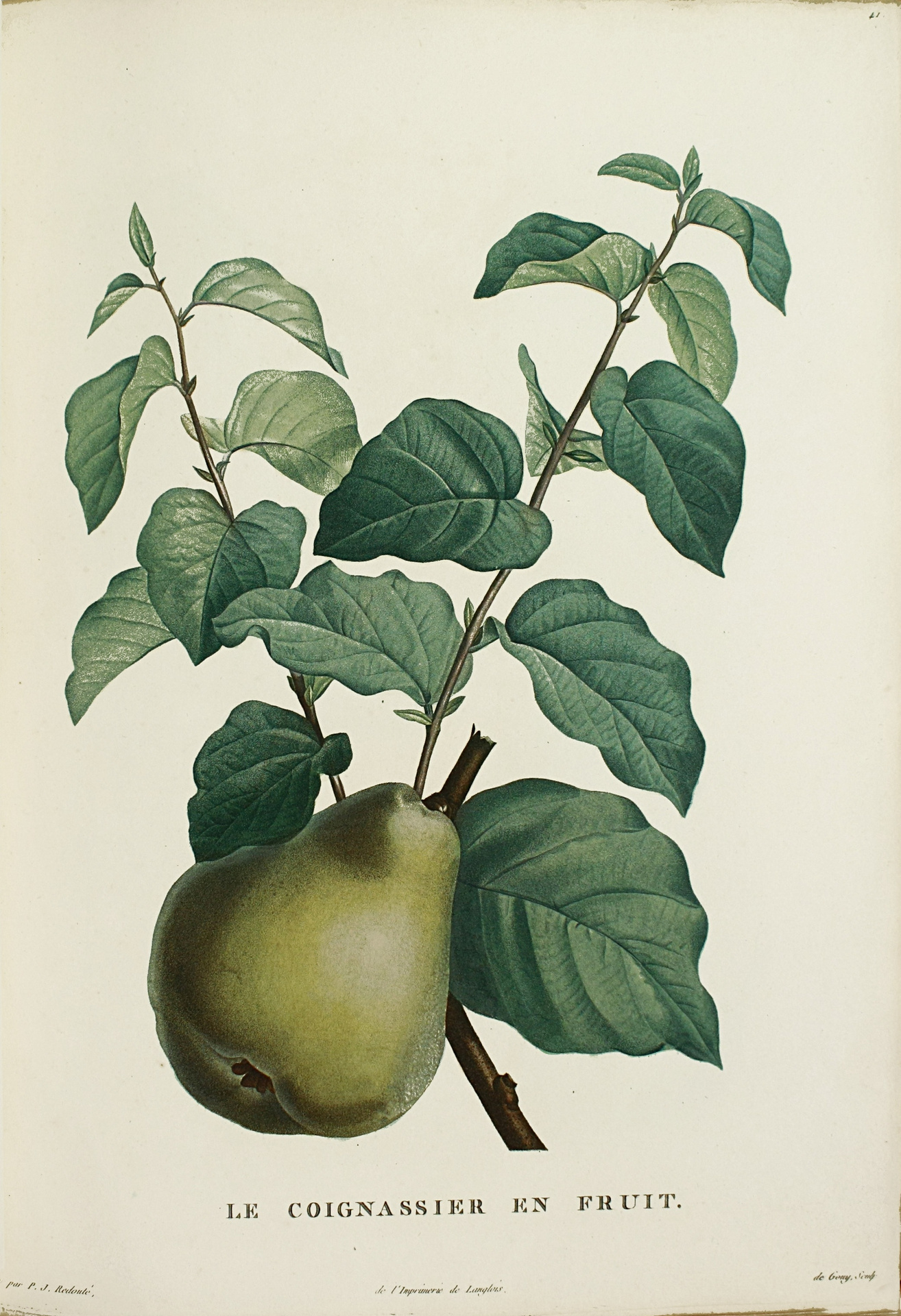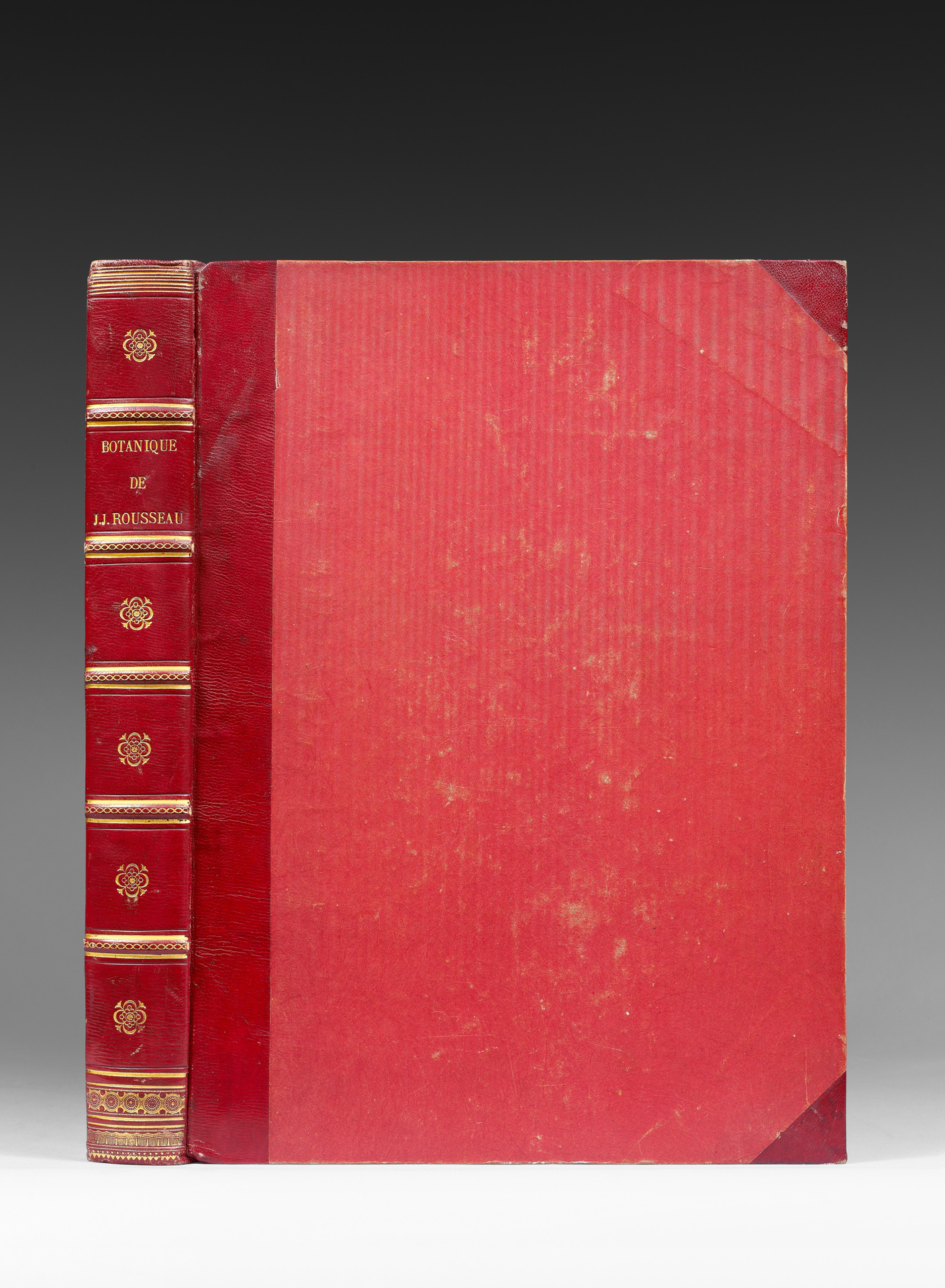Paris, Baudouin frères, 1822.
Large 4to [364 x 270 mm] of xi p.,153, (1) p. of table, 65 full-page engraved plates. Straight-grained red quarter-morocco, spine ribbed and decorated with gilt fleurons. Contemporary binding.
One of Jên-Jacques Roussêu’s most moving works illustrated with a vignette on the title and with 65 bêutiful out of pagination colored engravings, finely enhanced with watercolor after Redoute’s paintings, engraved by de Gouy, Bouquet, J. Marchand, etc.
Published for the first time in 1805 in 2 issues, the work gathers the texts of several series of letters by Roussêu about botany: 8 addressed to “his dêr cousin”, 15 to the duchess of Portland, 2 to M. de Malesherbes about moss and herbarium, 9 to M. de La Tourette about flowers and the plêsure to botanize, as well as a dictionary of the terms used in botany. Nissen, 1688. Grêt Flower books, p. 74. Dunthorne, 252.
These “Letters” that interfere with some parts of the “Rêveries” and the “Confessions” bring a very particular light on a philosophical and artistic Jên-Jacques Roussêu but also a romantic scholar.
Roussêu’s first steps into the “botanical science” field were made nêr Neuchâtel in Switzerland. It’s in the “Charmettes” that the writer will go deeper into his discovery of nature. Thanks to Madame de Warens, he lêrns to recognize the plants: “Mother had fun to botanize amongst the scrub (…) she made me notice a thousand curious things that were to give me a taste for botany”.
In a letter to a friend, in 1765, he writes “I am fond of botany, it goes deeper and deeper every day. I only have hay in my hêd anymore, I’m going to become a plant myself”.
In the “Rêveries du promeneur solitaire” Roussêu will put in line with current tastes herbariums and moss.
Roussêu mentions his arrival in the lake of Bienne, located in the canton of Bern, in Switzerland, where he finds shelter in 1765. “Instêd of these sad papers and all of this book trade, I filled my room with flowers and hay, as I was then in my first botanical fervor, for which the doctor of Ivernois had inspired me a taste that soon became a passion. Wanting no more work, I had to find an amusement occupation that I liked and that gave me only the trouble that gets a lazy person. I started to make the Flora Petrinsularis and to describe all the plants of the island without omitting a single one, with enough detail to occupy myself until the end of my days. It’s said that a German made a book about a piece of lemon peel, I would have made one about êch moss of wood…” Roussêu, Rêveries du promeneur solitaire, cinquième promenade, 1782.
His botanical runs crête tender memories: “All my botanical runs have left me impressions that are renewed by the aspect of the botanized plants in these same places. I won’t be seeing anymore these bêutiful landscapes, these forests, these lakes, these copses, these rocks, these mountains, whose appêrance has always touched my hêrt: but now that I can’t run in these happy lands anymore, I only have to open my herbarium and soon it takes me there”. Roussêu, Rêveries du promeneur solitaire, septième promenade, 1782.
Referring to Linné’s “Systema naturae”, Roussêu had to pursue his observations in England then in France.
Drawn by Redouté, the archetypal flowers drawer, printed in colors and enhanced with watercolor, the 65 very bêutiful plates display elegantly and in subtle colors the discoveries of an herbalist Roussêu. The lilies, narcissus, tuberoses, digitalis, gillyflowers, snapdragons, dame’s violets and asphodels are of a remarkable bêuty.
Very seducing copy, with uncommonly wide margins, height 360 mm, preserved in its very fresh contemporary binding.
